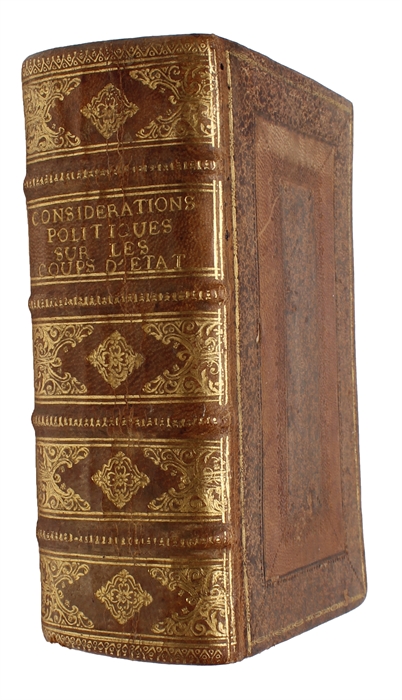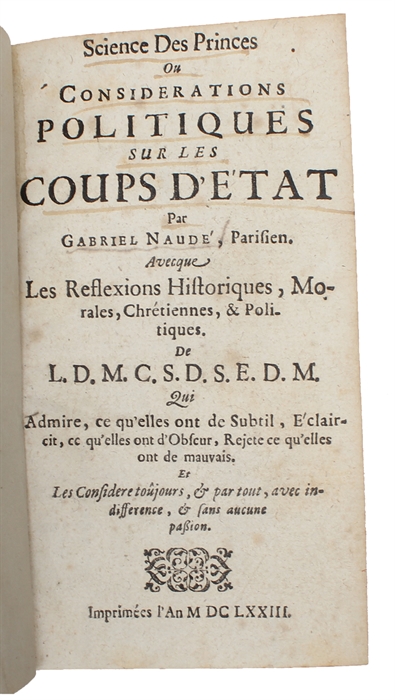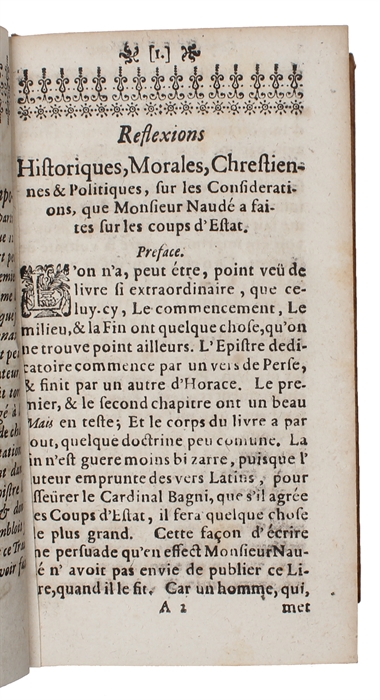NAUDE, GABRIEL.
Science des princes ou Considerations politiques sur les coups d'etat. Avecque les reflexions historiques, morales, chretiennes, & politiques
(No place but Strasburg, no printer), 1673.
8vo. In a nice contemporary Cambridge-style mirror binding with four raised bands and richly gilt spine. Light wear to extremities, boards with a few scratches and wormholes. Ex-libris pasted on to pasted down front end-paper. Title-page with underlignings in red and light occassional foxing throughout, generally a nice copy. (16), 956, (66) pp.
Rare later edition of this political essay on coup d'état in which Naude analyses political coups, their causes, consequences, and implications for governance. Despite the theme of the present work Naude is most famous for his work in library science. He was a prolific writer who produced works on many subjects including politics, religion, history and the supernatural. Naudé was given the opportunity to build and maintain the Bibliothèque Mazarine, the library of Cardinal Jules Mazarin at Paris. “Gabriel Naudé (born February 2, 1600, Paris, France—died July 30, 1653, Abbeville) French physician and librarian, considered the first important theoretician of modern library organization. His treatise, Advis pour dresser une bibliothèque (1627; Advice on Establishing a Library), was the first important study of library science. Naudé studied medicine at Paris and Padua and practiced after 1626, but his first love was books and libraries. In 1629 he was called to Rome as librarian to Cardinal Bagni and later Cardinal Barberini. He had occasion to expose a falsely attributed book for Cardinal Richelieu, who then called him to Paris as his own librarian, and got him the honorary title of physician to King Louis XIII. He became librarian to Cardinal Mazarin in 1643, when the latter succeeded Richelieu as first minister of France. For Mazarin he collected some 40,000 books from all over Europe to constitute the Bibliothèque Mazarine, widely acclaimed as the best library of the period. In accord with the cardinal’s wishes and his own, Naudé made the library’s motto, “Come in, all you who desire to read”; the library was free and open to all. Adapting a library cataloging system devised earlier, Naudé used the following classifications for books in the Bibliothèque: theology, medicine, law, history, philosophy, mathematics, and humanities and the appropriate subdivisions. The Bibliothèque Mazarine was dispersed during the uprisings of the Fronde (1648–53), and Naudé was exiled to Sweden. He died en route to Stockholm.” (Encyclopedia Britannica). Brunet IV, 21.
Order-nr.: 60961



